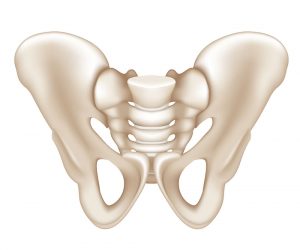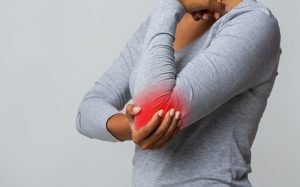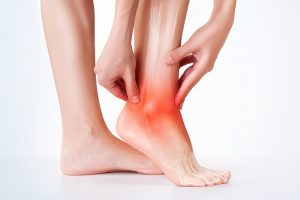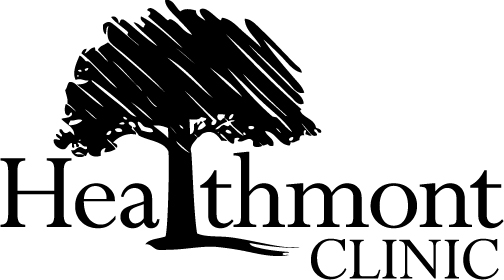Open Hours: Monday 9am-7pm | Tuesday 9am-1pm and 7pm-9pm | Wednesday 2pm-5.30pm | Thursday 9am-12.30pm | Friday 9am-6pm | Saturday & Sunday Closed
Special Interests
Experience over the years has offered up a number of conditions we’ve seen a number of times.
Sometimes it’s been a repetition of a basic concern but sometimes extra study has been needed to understand the pathway to the issue’s resolution.
The following list has been compiled to assist people with such conditions who are still looking for their healing answers. We’d love to connect and apply our skillset.
DO NOT USE
DO NOT USE
Pelvic instability

The human pelvis comprises three bones; a right and left iliac bone and a sacrum. Accordingly it has to have three joints; a right and left sacroiliac joint and a pubic joint. So there are a number of biomechanical features to consider if we are to assess the pelvis as a whole.
Trauma to this structure can come in a few ways. It may be from a one-off sudden impact, like a fall or a sudden bump. It could be from slow ongoing pressures, like prolonged riding on a saddle on a horse or multiple pregnancies. Or somewhere in between with frequent knocks, like what can occur during contact sports.
These different mechanisms of injury will lead to different therapy options. Pelvic instability occurs when symptoms, especially pain, persist in an environment where therapy has been applied and exercises have been tried.
But there has to be a reason or reasons as to why therapy has failed. For more information see our Chiropractic answers page, I think my problem is muscular, but it won’t go away.
Pregnancy low back pain

The joy of having another life growing within is sometimes tarnished by low back pain. But does it have to be this way?
The third trimester of pregnancy is the phase of baby’s development whereby all the pieces are there and they just need to grow. Consequently, this brings added weight and this has to be carried by the pregnant skeleton. As the baby’s weight is added at the front of the women’s spinal column the structures at the back have to change, adapt and work a whole lot harder. If all the biomechanics are sound there may be no or little discomfort. However, if there are dysfunctions in those mechanics irritation, aching or pain will probably ensue. Sometimes the onset of these dysfunctions is before the pregnancy itself and it is only under the extra load of pregnancy, especially mid to later term, that they show up.
Our experience in this condition is difficult to exactly relay. It may help those seeking answers for this problem to reveal Paul has cared for his own wife through six full term pregnancies and he has helped an incalculable number of other women through their pregnancy journey.
When making decisions about techniques for treatment careful consideration is applied to all cases. A woman in the state of pregnancy is afforded the same careful consideration. For more information on our options see Our Techniques page.
Tennis elbow

Even if you are not a tennis player you can still get a sore outer elbow, it’s called lateral epicondylitis. As humans, we use our forearms for a lot of activities, especially work.
When the pressures and strains become too much inflammation and pain sets in. Dealing with the mechanical issues alongside the soft tissue injury is paramount to complete recovery for this condition.
For more information see Chiropractic answers page, Don’t Chiropractors only look at bones?
TMJ syndrome (Jaw)

The jaw joint is a mechanical challenge in a number of ways.
Firstly the actual joint surface is quite small compared to the overall length of the jaw bone itself. Therefore the leverage ratio makes the joint surface work hard.
Secondly the joint is often used repeatedly; yes some people talk way more than others.
Thirdly the joint is used many times in the day for chewing purposes. The power of the muscular contractions sometimes needed in chewing puts a back pressure into the small joint.
Fourthly the jaw being at the front of the face often suffers trauma from other objects. E.g. steering wheels in car accidents, sporting injuries and unfortunately other people.
Thankfully this joint is no different to all other joints in the body in that its recovery needs attention directed at both the joint dysfunction and the surrounding musculature. For more information see Chiropractic answers page, Don’t Chiropractors only look at bones?
Chronic and repeatedly sprained ankle

Here we are not referring to the simple one-off sprained ankle. Rest, ice, compression and elevation often get the patient through those.
Our clinic’s special interest is the condition whereby the ankle joint has been sprained multiple times, often with the period between incidences decreasing.
The return to playing/working once pain has subsided in the earlier sprains has been shown to be an unreliable indicator for actual joint stability. And if the joint has such instability it takes less force to resprain, and this cycle continues.
The more often the joint is traumatised the more comes the build-up of scarring and adhesions around it. This condition has a nasty characteristic of continuing in its dysfunctional state, below pain thresholds, for years.
Dealing with the mechanical issues alongside the soft tissue injury is paramount to complete recovery for this condition.
For more information see Chiropractic answers page, Don’t Chiropractors only look at bones?
Diaphragm spasming

Pain about the front of the chest is a condition taken seriously by all primary contact practitioners. But once all investigations and tests have revealed no cardiac or other abdominal issues questions abound as to what may be producing pain at the sternum or front ribs.
Over our thirty-two years in practice, many patients have presented with this exact story and a lot of them have been suffering from diaphragm spasming. In this clinic there are tests we perform and places to palpate to determine such a diagnosis.
Other closely related conditions here include costochondritis and Tietze syndrome.
If the above scenario sounds like yours we’d love to connect and apply our skillset.
Irritable bowel syndrome
IBS encompasses diverse gut symptoms such as bloating, gas, abdominal discomfort, constipation / diarrhoea or a combination of both.
IBS in itself isn’t a medical diagnosis but a collection of symptoms that stems from an unknown source, comparable in diagnosis to chronic fatigue.
Working with a qualified practitioner to determine the source and root cause of IBS is the key to improving this condition.
Individualized treatment is the only way to create sustained, efficient change by identifying underlying mechanisms such as stress, anxiety, depression, food intolerances, allergies, gut microbiome imbalance or genetic factors.
Once these factors are addressed, in a lot of cases relief from IBS can be experienced.
Preconception Care
Preconception health focuses around the health of a couple before the woman becomes pregnant. Consistently research shows that the health of both parents is a predicting factor for birth outcomes and health of a child in their early years.
Therefore ensuring adequate supply of all factors essential to the quality of sperm, eggs and fertilisation can support a trouble-free pregnancy and delivery of a healthy baby.
Preconception care is recommended for a minimum of three month prior to conception to optimise sperm and egg health.
Food intolerances or food allergies
Food intolerance is a broad term that is used to describe a range of adverse reactions to foods, that cause symptoms after consumption. These include stomach pain, bloating, gas/flatulence, diarrhoea, irritable bowel syndrome (IBS), rashes, hives (urticaria), recurrent mouth ulcers or headaches. If food intolerances are not properly managed, these symptoms can adversely affect overall health and wellbeing.
Food intolerances are sometimes confused with, or mislabeled as food allergies. Food intolerances involve the digestive system, whilst food allergies involve the immune system. Unlike Immunoglobulin E (IgE) antibody mediated food allergy, food intolerances (except for sulphite and benzoate reactions) do not cause anaphylaxis (severe allergic reactions), that can be life threatening.
Therefore it is important to differentiate between food intolerances or food allergies. If you have been found allergic to a food, the best treatment is to intentionally avoid that food at all costs.
Food intolerances however, with the help of a practitioner can be improved. By targeting gastrointestinal and immune function to enhance digestion and improve chemical sensitivity, most experience improved symptoms and increased overall health.
Post Pill Support
Quitting hormonal birth control can be a bumpy ride for some woman. Learning how to rebalance your hormones naturally with the help of a practitioner can make all the difference to reset your hormone balance.
The most common symptoms coming off contraception is irregular or skipped periods, heavy bleeding, ovulation pain, menstural pain, skin breakouts, bloating, mood swings and nutrient deficiencies.
By optimising gastrointestinal health and elimination pathways through the liver and kidneys you can support efficient elimination of synthetic hormones, triggering your ovaries to start balancing your hormones out.
If you have any questions or would like to develop an individualised health plan for yourself, please contact our Clinical Nutritionist Annabel.

Contact
Phone: (03) 8288 1314
Fax: (03) 8288 1316
Email: reception@healthmont.com.au
For Clinical Nutrition
Email: info@the greenground.com.au
Website: www.thegreenground.com
Phone: 0430 952 400
Address:
108 Canterbury Rd, 3135 Heathmont, Victoria
Chiropractic Department Hours:
These are our current hours. They may vary leading up to Public Holidays or vacations.
Monday 9am-7pm
Tuesday 9am-1pm and 7pm-9pm
Wednesday 2pm-5.30pm
Thursday 9am-12.30pm
Friday 9am-6pm
Saturday & Sunday Closed
Clinical Nutrition Department Hours:
Monday 10am-6pm
Tuesday 9am-3pm and 6pm-9pm
Wednesday 11am-3pm
Thursday 10am-5pm
Friday Closed
Saturday & Sunday On request
Sitemap
Need to make a booking? Call 03 8288 1314